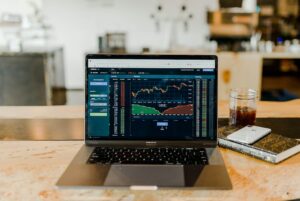The Role of Artificial Intelligence in Algorithmic Trading for Forex
In recent years, the financial industry has witnessed a dramatic increase in the use of artificial intelligence (AI) in various fields, and algorithmic trading for forex is no exception. AI has revolutionized the way traders approach the foreign exchange market, offering new opportunities and advantages that were previously unthinkable. In this article, we will explore the role of AI in algorithmic trading for forex and its impact on the industry.
Algorithmic trading, also known as automated or black-box trading, is the use of computer programs to execute trades in the financial markets. These programs are designed to follow a set of predefined rules and strategies, allowing for faster and more efficient trading decisions. With the advent of AI, algorithmic trading has reached new heights of sophistication and accuracy.
One of the key advantages of using AI in algorithmic trading is its ability to analyze vast amounts of data in real-time. The forex market is a highly dynamic and volatile environment, where prices can change rapidly. AI algorithms can process large volumes of data, including historical price data, news feeds, and social media sentiment, to identify patterns and trends that may not be apparent to human traders. This allows AI-powered trading systems to make informed decisions and react to market changes much faster than their human counterparts.
Another important aspect of AI in algorithmic trading is its ability to learn and adapt. AI algorithms can be trained on historical data to identify profitable trading strategies and patterns. Through a process called machine learning, AI systems can continuously refine and improve their trading models based on real-time market data. This adaptive nature of AI makes it particularly effective in capturing short-term opportunities and adjusting to changing market conditions.
In addition to data analysis and learning capabilities, AI algorithms can also incorporate complex mathematical models and statistical methods. These models can be used to estimate risk, calculate optimal trade sizes, and optimize trading strategies. By using AI, traders can minimize the emotional biases and human errors that often lead to poor investment decisions. AI-powered trading systems are driven by logic and objective analysis, making them less susceptible to emotional reactions and irrational behavior.
AI also enables traders to explore advanced trading strategies that were previously impossible to implement manually. For example, AI algorithms can perform high-frequency trading, where trades are executed within milliseconds or even microseconds. This type of trading relies on exploiting small price discrepancies that exist for very short periods of time. AI algorithms can scan multiple markets simultaneously, identify these discrepancies, and execute trades at lightning speed, profiting from even the smallest market inefficiencies.
Moreover, AI can help traders manage risk more effectively. By continuously monitoring market conditions and adjusting positions accordingly, AI algorithms can limit potential losses and protect profits. AI-powered risk management systems can also assess the overall portfolio risk and suggest appropriate hedging strategies to mitigate potential losses.
Despite the numerous advantages of AI in algorithmic trading, it is important to note that it is not a panacea. Like any other trading strategy, AI-powered systems are subject to market risks and uncertainties. Additionally, the complexity and sophistication of AI algorithms require significant computational resources and technical expertise. Therefore, it is essential for traders to have a deep understanding of both AI and forex markets to fully leverage its potential.
In conclusion, AI has revolutionized algorithmic trading for forex by providing traders with powerful tools to analyze data, learn from historical patterns, and adapt to changing market conditions. The ability of AI algorithms to process vast amounts of data in real-time, combined with their learning capabilities, has opened up new possibilities for traders to achieve higher accuracy and profitability. However, it is crucial to approach AI-powered trading systems with caution and to continuously monitor their performance to ensure their effectiveness in the ever-changing forex market.





